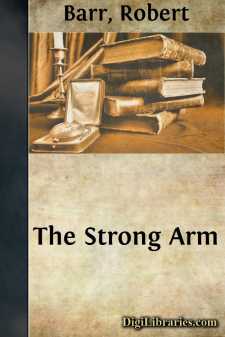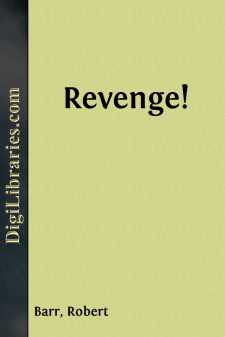Categories
- Antiques & Collectibles 13
- Architecture 36
- Art 48
- Bibles 22
- Biography & Autobiography 813
- Body, Mind & Spirit 142
- Business & Economics 28
- Children's Books 17
- Children's Fiction 14
- Computers 4
- Cooking 94
- Crafts & Hobbies 4
- Drama 346
- Education 46
- Family & Relationships 57
- Fiction 11829
- Games 19
- Gardening 17
- Health & Fitness 34
- History 1377
- House & Home 1
- Humor 147
- Juvenile Fiction 1873
- Juvenile Nonfiction 202
- Language Arts & Disciplines 88
- Law 16
- Literary Collections 686
- Literary Criticism 179
- Mathematics 13
- Medical 41
- Music 40
- Nature 179
- Non-Classifiable 1768
- Performing Arts 7
- Periodicals 1453
- Philosophy 64
- Photography 2
- Poetry 896
- Political Science 203
- Psychology 42
- Reference 154
- Religion 513
- Science 126
- Self-Help 84
- Social Science 81
- Sports & Recreation 34
- Study Aids 3
- Technology & Engineering 59
- Transportation 23
- Travel 463
- True Crime 29
The Triumphs of Eugene Valmont
by: Robert Barr
Categories:
Description:
Excerpt
The Mystery of the Five Hundred Diamonds
When I say I am called Valmont, the name will convey no impression to the reader, one way or another. My occupation is that of private detective in London, but if you ask any policeman in Paris who Valmont was he will likely be able to tell you, unless he is a recent recruit. If you ask him where Valmont is now, he may not know, yet I have a good deal to do with the Parisian police.
For a period of seven years I was chief detective to the Government of France, and if I am unable to prove myself a great crime hunter, it is because the record of my career is in the secret archives of Paris.
I may admit at the outset that I have no grievances to air. The French Government considered itself justified in dismissing me, and it did so. In this action it was quite within its right, and I should be the last to dispute that right; but, on the other hand, I consider myself justified in publishing the following account of what actually occurred, especially as so many false rumours have been put abroad concerning the case. However, as I said at the beginning, I hold no grievance, because my worldly affairs are now much more prosperous than they were in Paris, my intimate knowledge of that city and the country of which it is the capital bringing to me many cases with which I have dealt more or less successfully since I established myself in London.
Without further preliminary I shall at once plunge into an account of the case which riveted the attention of the whole world a little more than a decade ago.
The year 1893 was a prosperous twelve months for France. The weather was good, the harvest excellent, and the wine of that vintage is celebrated to this day. Everyone was well off and reasonably happy, a marked contrast to the state of things a few years later, when dissension over the Dreyfus case rent the country in twain.
Newspaper readers may remember that in 1893 the Government of France fell heir to an unexpected treasure which set the civilised world agog, especially those inhabitants of it who are interested in historical relics. This was the finding of the diamond necklace in the Château de Chaumont, where it had rested undiscovered for a century in a rubbish heap of an attic. I believe it has not been questioned that this was the veritable necklace which the court jeweller, Boehmer, hoped to sell to Marie Antoinette, although how it came to be in the Château de Chaumont no one has been able to form even a conjecture. For a hundred years it was supposed that the necklace had been broken up in London, and its half a thousand stones, great and small, sold separately. It has always seemed strange to me that the Countess de Lamotte-Valois, who was thought to have profited by the sale of these jewels, should not have abandoned France if she possessed money to leave that country, for exposure was inevitable if she remained. Indeed, the unfortunate woman was branded and imprisoned, and afterwards was dashed to death from the third storey of a London house, when, in the direst poverty, she sought escape from the consequences of the debts she had incurred....












